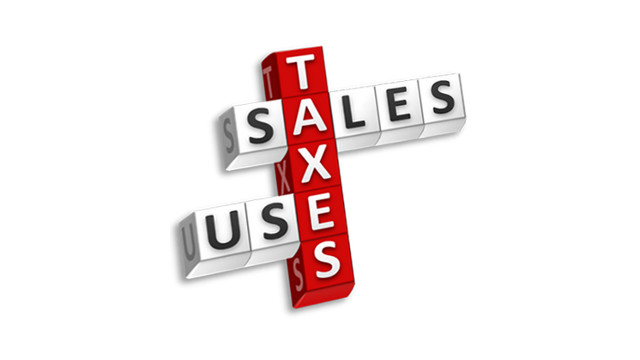By Charles Maniace.
Taxes may be one of the guarantees in life, but that doesn’t necessarily mean that they – or their purposes – are always understood. While sales tax is meant to be a means for states and local jurisdictions to pay for things like schools, roads and public services, there can be unintended consequences of these regulations. However, consumers can also end up with the short end of the stick when it comes to tax regulations.
For example, income disparity can skew percentages of spending on essential items such as food and housing. Sales tax can be considered “regressive,” especially when low-income taxpayers face greater impact than high-income taxpayers. Many jurisdictions will provide exemptions or reduced rates for basic necessities (e.g., food, clothing, prescription drugs). At the same time though, taxes may increase the cost of food among lower income areas.
Let’s take a closer look at some of the significant impacts between seemingly subtle differences in tax regulations.
Food deserts
More states are opting to exempt food purchased for home consumption to make food more affordable for everyone. State-enacted exemptions for food generally include items such as fresh produce and meats but typically exclude prepared foods and candy. Essentially, ingredients required for preparing meals from scratch may be exempt from sales tax. However, some types of prepared meals are not. And those are the types of meals those who don’t have access or ability to make a home cooked meal often purchase.
There is also the issue of food deserts, which are communities with limited access to healthy and affordable food. Food deserts are borne from complex societal transformations, including the sales tax growth. However, narrow definitions of “food” do not ease the burden of sales tax in food deserts – even when there are food exemptions in place. For example, sales tax legislation pushed administrative difficulties and costs onto independent grocers in more urban areas. Many were forced to close. Comparatively, chain grocery stores in high-income suburban communities did not have as much difficulty absorbing those new costs.
From there, lower income communities saw higher growth of fast-food restaurants and convenience stores. United States Department of Agriculture (USDA) studies indicate that more than 23 million Americans live in low-income areas more than one mile from a large grocery store. Furthermore, 2.3 million of those households do not have access to a car. These communities are more dependent on convenience stores and fast-food establishments offering limited food choices that could be taxed differently than if sold at a traditional grocery store.
For example, in Maryland the sale of grocery food is taxable unless the sale is made by a “substantial grocery or market business.” Additionally, “a grocery or market business is considered substantial if sales of grocery or market food items total at least 10% of all sales of food.” If a Maryland convenience store meets that 10% threshold, then food purchased there may cost differently than if purchased at a grocery store.
The ‘pink tax’
Another consequence of tax regulations is the “pink tax,” which is the application of sales tax in a way that is considered disproportionally unfair to females. The “tampon tax” is another side of that same issue, with menstrual products being taxed disproportionately. That is because the taxable status of menstrual products often results in them being costlier for those who menstruate.
Menstrual products being subject to standard sales tax indicated to the public that they were seen as regular goods instead of necessities, especially in those states that give tax breaks to necessities. Being subject to tax, especially in VAT jurisdictions where rates can be as high as 27%, sometimes places these products out-of-budget for people with lower incomes.
However, some states (California and Louisiana) are working to fully exempt menstrual products from sales tax. Each bill exempts similar products (i.e., pads, tampons, menstrual cups and sponges, and sanitary liners), with Louisiana also opting to exempt panty liners. Hawaii’s bill specifically names many more menstrual items, like feminine hygiene syringes, and vaginal creams, foams, ointments, jellies, powders and sprays. Other states (Alaska, Iowa and South Carolina) accounted for all products used in connection with the menstrual cycle.
The definition of ‘necessity’ is changing over time
So where do we go from here? How can we ensure that sales tax does not negatively impact some groups more than others? With food, perhaps the definition of food should include any item made for consumption. That could perhaps level the playing field, placing less of an emphasis on ingredients.
Changes are already underway in numerous states when it comes to menstrual products, but as with the issue of food deserts, there is not a one-size-fits all approach. Legislatures pass rules due to differing opinions and varying public influences and priorities. And what about all of the other states that do not have such bills in place? Are they waiting to see results in other locations or are they waiting on something else? Whatever the reason, it’s especially clear that sales tax is only going to continue to evolve over time.
======
As vice president, regulatory analysis and design at Sovos, Chuck Maniace lives and breathes tax. For him, job No. 1 is ensuring Sovos customers remain fully compliant as rates, rules and requirements change around them. Chuck places a premium on making time to share his expertise, wisdom and insight as a means of facilitating career advancement within the Sovos organization and in increasing regulatory understanding in the broader Sovos community.
Thanks for reading CPA Practice Advisor!
Subscribe Already registered? Log In
Need more information? Read the FAQs




